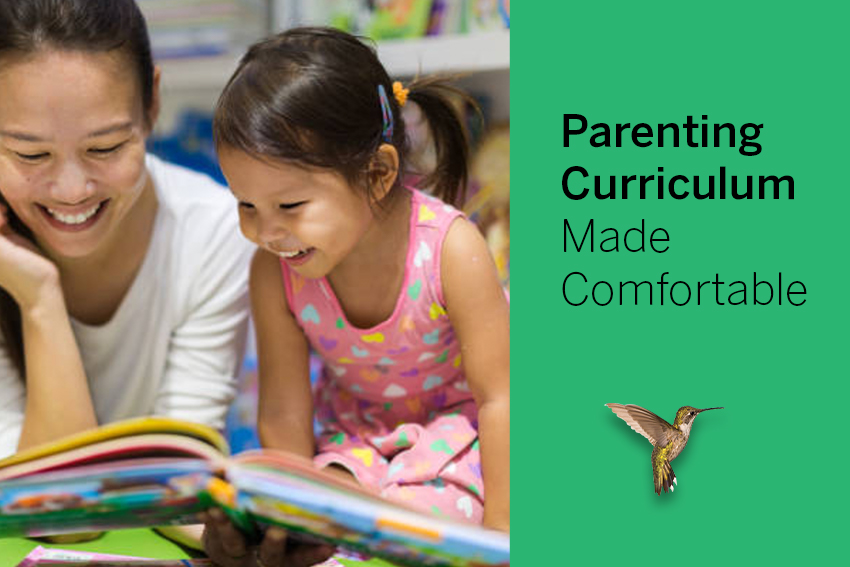Parenting Curriculum Made Comfortable


Every day, mothers, fathers, grandparents, and all the other family members who help children enter the world with hope and love find themselves in similarly vulnerable positions. They, too, are facing the unknown and need support and encouragement as they foster their children’s development.
Two-pronged Approach
Many early learning programs support parents and families by using curricula designed to do so. In my previous experiences as a State administrator and as a Head Start State Collaboration Office Director, I learned about many of these curricula and I found most of them have something in common: they present a two-pronged (at least) approach to the curriculum—content created specifically for families and content created for practitioners working with families. You can check out a database of different types of parenting curricula on the Office of Head Start’s (OHS) Early Childhood Learning & Knowledge Center (ECLKC) website.
A recent addition to the research-based parenting curricula collected and cataloged by the OHS is ReadyRosie. The mission of ReadyRosie is to equip and inspire schools and families to work easily together to change the lives and trajectories of children.
As someone familiar with the wide range of parenting curricula, what I find especially wonderful and unique about ReadyRosie is the thoughtfulness and intentionality they demonstrate in supporting families by focusing on showing rather than telling.
For example, ReadyRosie believes an approach that combines at-home learning by sending rich parenting content home and interactive, in-person learning by encouraging families to participate in workshops best enables those families to most effectively practice parenting skills, both in the comfort of their homes and with peers. So, their two-prong approach includes workshops that are 1-1.5 hours in length, providing participants opportunities to practice parenting skills, and, in addition, offers thousands of easily accessible Modeled Moment videos. Modeled Moment videos are designed by ReadyRosie to demonstrate fun, easy activities that families can do at home and on the go to strengthen bonds and build on classroom learning. The videos are two-minute clips of real families in real environments, filmed in both English and Spanish, delivered to families via text or email. In addition to the Modeled Moments videos that families can access at home, ReadyRosie has compiled a series of short family workshops titled “Give Me Ten.’” These 10-minute workshops serve as additional resources to connect with families during open house, meet-the-teacher, or family conference events.
ReadyRosie’s focus on demonstrating what is being taught really appeals to me. Remember my story about the time I couldn’t figure out how to strap my newborn into her car seat? Well, a week after taking Makena home, I had to take her for a check-up at the doctor’s office. It was the first time we were leaving the house and I had to put her in the car seat again. I still did not quite know how to do it. I put her in the car seat, took a picture, and sent it to one of my sisters to ask what I was doing wrong. See, as a new mom who was “mom-ing” without her own mom (my mom died when I was in my early teens) and living in a state without any extended family, I was seeking help from a trusted source with whom I felt I could be vulnerable. I did so from the privacy and comfort of my home, away from others’ watching eyes. I think ReadyRosie’s Modeled Moments offer families that same kind of comfort, and that’s why I think they can take any parenting and family engagement effort to a deeper, more meaningful level.